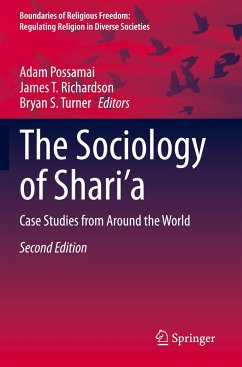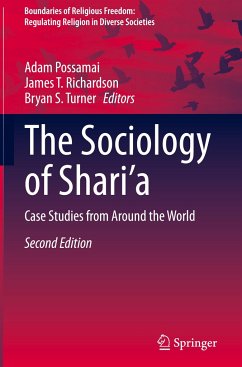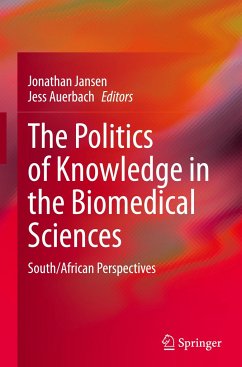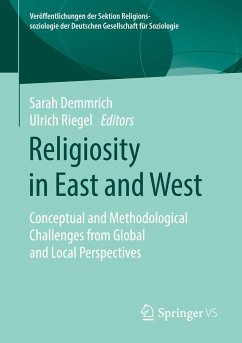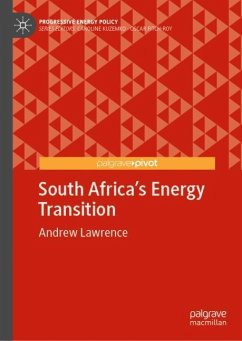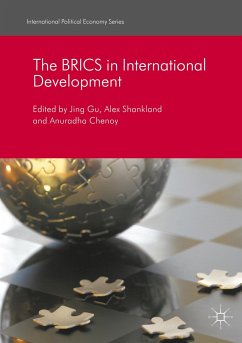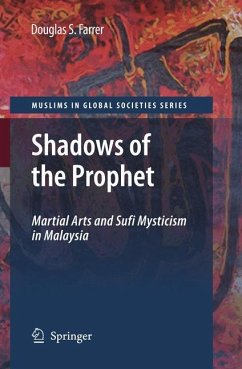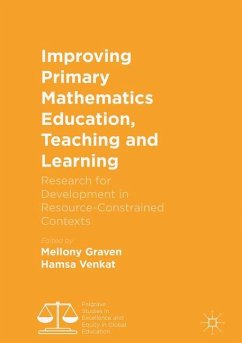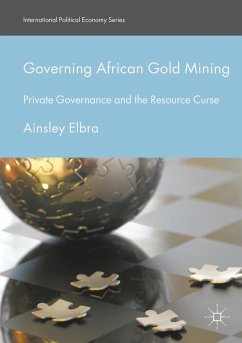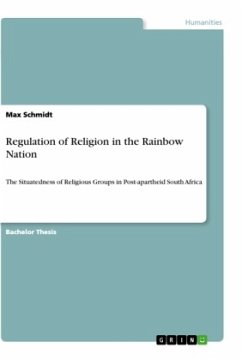
Regulation of Religion in the Rainbow Nation
The Situatedness of Religious Groups in Post-apartheid South Africa
Versandkostenfrei!
Versandfertig in 1-2 Wochen
27,95 €
inkl. MwSt.

PAYBACK Punkte
0 °P sammeln!
Bachelor Thesis from the year 2019 in the subject Sociology - Religion, grade: 1.0, University of Leipzig (Institute of Sociology; Institute of Political Science), language: English, abstract: 25 years after the de jure end of apartheid, the notion of religious freedom is highly contested in South Africa (SA). With a population of roughly 55 million inhabitants (CIA 2018), SA is generally well-known for its religious plurality, as entailed in the term "rainbow nation". In the last few years, however, repeatedly unusual practices called for attention that supposedly abused the belief systems of...
Bachelor Thesis from the year 2019 in the subject Sociology - Religion, grade: 1.0, University of Leipzig (Institute of Sociology; Institute of Political Science), language: English, abstract: 25 years after the de jure end of apartheid, the notion of religious freedom is highly contested in South Africa (SA). With a population of roughly 55 million inhabitants (CIA 2018), SA is generally well-known for its religious plurality, as entailed in the term "rainbow nation". In the last few years, however, repeatedly unusual practices called for attention that supposedly abused the belief systems of congregants. According to the Commission for the Promotion and Protection of the Rights of Cultural, Religious and Linguistic Communities (CRL), some congregants, for example, were fed living rats and snakes or asked to drink petrol by their religious leaders (CRL 2017). This thesis aims to explore the case of SA as a prime example of how possible limits to rights related to the freedom of religion are societally negotiated and religious practices politicised. More precisely, the following research questions, as two sides of the same coin, will be scrutinised: (1) How do different social groups attempt to negotiate the extent to which the notion of freedom of religion can be stretched? (2) How do these groups negotiate when religious practices must come to an end in order to protect the earthly well-being of congregants? In order to answer these questions, a content analysis of the Report of the Hearings on the Commercialisation of Religion and Abuse of People's Belief Systems (henceforth "the Report"), published by the CRL in 2017, as well as of affiliated documents and focal examples of media coverage was conducted. Additionally, I hold an interview with the CRL's Deputy Chairperson to shed more light both onto the self-understanding of the Commission and the background against which its Report was published. The CRL was chosen as the main unit of analysis as it is one of the few constitutional organs to exert some control over developments threatening people's well-being in SA's religious sector. It is expected that, considering the manifold constitutive tensions built into the legal architecture of post-apartheid SA (Burchardt 2017a), both the CRL's investigation itself as well as its recommendations are highly contested by most various groups. Moreover, since the abuse of people's belief system became a crucial point of political conflict for the first time in the post-apartheid era, it is also expected that no consensually agreeable solution to halting them can be found in the foreseeable future.



